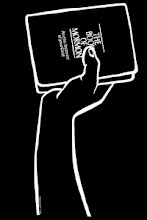It seems, then, there is good news and bad news about the resurrection. The good news is that everyone will be resurrected. All will live again! And all who have been righteous (have repented) will still be righteous. The bad news is that he that is filthy (which means the devil and those who have chosen to associate with him) shall be filthy still. Others will receive a lesser glory than the celestial because they have not repented while in the flesh. Therefore, in the resurrection men will be judged. Judgment tells how well we have kept the commandments in the flesh.
Monday, March 29, 2010
The Atonement
I found this great article by James E Faust on the atonement, which encompases the resurection.
The Atonement: Our Greatest Hope
Monday, March 22, 2010
Scripture--Personal Revelation
Wednesday, March 17, 2010
Personal Revelation
Monday, March 15, 2010
FHE: LESSON ON OBEDIENCE

ST MATTHEW CHAPTER 8
23 ¶ And when he was entered into a ship, his disciples followed him.
24 And, behold, there arose a great atempest in the sea, insomuch that the ship was covered with the waves: but he was asleep.
25 And his disciples came to him, and awoke him, saying, Lord, save us: we perish.
26 And he saith unto them, Why are ye afearful, O ye of little faith? Then he arose, and brebuked the winds and the sea; and there was a great calm.
27 But the men marvelled, saying, What manner of man is this, that even the winds and the asea obey him!
If even the winds and the sea obey him, then why shouldn’t we? Christ did so much for us during his life, and all he asks in return is our obedience. The third article of faith states, “We believe that through the aAtonement of Christ, all bmankind may be csaved, by obedience to the laws and ordinances of the Gospel.” While obeying the laws and ordinances of the gospel may seem easy in comparison to Christ’s sacrifice, sometimes the pressures of the raging world around us can prove to be too much. Elder Henry B. Eyring said, “So, the great test of life is to see whether we will hearken to and obey God’s commands in the midst of the storms of life. It is not to endure storms, but to choose the right while they rage. And the tragedy of life is to fail in that test and so fail to qualify to return in glory to our heavenly home.” It is not enough to obey because we feel subjected to, we must obey willingly. As we do so, we are progressing and training to become more like our Heavenly Father. It is not necessary to know the reason for why we are obeying, but the knowledge that that commandment came from our Father in Heaven should be enough. John 15:10 says that “If ye akeep my commandments, ye shall abide in my blove; even as I have kept my Father’s commandments, and abide in his love.”
We can learn a valuable lesson from Nephi and his brothers. As they were commanded to do a thing that Laman and Lemuel felt was too hard, ever faithful Nephi told them, “I will go and do the things which the Lord hath commanded, for I know that the Lord giveth no commandment unto the children of men, save he shall prepare a way for them that they may accomplish the thing which he commandeth them.” The Lord does indeed prepare a way for his will to be done. How clear the way may very well rest on our faith and willingness to obey.
We all deal with obedience on a personal level through our daily struggles, but we often do not stop to think of how our choices affect others. Romans 5:19 “For as by one man’s adisobedience many were made sinners, so by the bobedience of one shall many be made righteous.” Our observances of the laws and ordinances of the Gospel can have severe consequences, not only for us, but for those around us. I suppose one of the greatest examples of this would be the Savior’s plea to our Father in the
I would like to end with some advice that Elder Henry B. Eyring gave in which we can each practice quick and steady obedience:
- Feast upon the word of God.
- Pray always.
- Be a full-tithe payer
- Escape from sin and its terrible effects.
“Each takes faith to start and then to persevere. And all can strengthen your capacity to know and obey the Lord’s commands.” I challenge you all to add these for things to your life, if you haven't already.
Monday, March 8, 2010
Lesson: Miracles
Dallin H. Oaks, “Miracles,” Ensign, Jun 2001, 6
The word miracle is used in different ways. We sometimes say that any happening we cannot explain is a “miracle.” To me, a computer is a miracle. So are cell phones and space travel. But these wonders are explainable by physical laws understood by some mortals. I call them miracles because I do not personally understand them and therefore cannot duplicate them at will.
Another category of miracles, so-called, are the tricks that some magicians and religious practitioners stage in order to produce astonishing events in aid of their professions or ministries. You will remember that the magicians in Pharaoh’s court duplicated some of the miracles Moses produced through the power of God (see Ex. 7–8). Perhaps these magicians were servants of the devil, using his power, but I think it more likely that they were simply skilled practitioners of magic tricks that they used to reinforce their position in Pharaoh’s court.
Religious practitioners have employed similar deceptions in our own day. About 40 years ago a professional dramatic production planned for a midwestern city had to be postponed because the producers could not find enough professional actors to perform the required roles. A great religious revival was under way in that city, and I was told the revivalists had hired all of the available professional actors to portray miraculous healings and conversions to enhance their position and goals with their audiences. Before we are too critical of such techniques, we should remember that we engage in similar deceptions whenever we exaggerate a happening in order to dazzle an audience into thinking we have experienced a miracle or to enhance our stature in other ways. Warning!
We know from the scriptures that persons without authority will use the name of Jesus Christ to work what seem to be miracles. The Savior taught that as part of the Final Judgment many would say, “Lord, Lord, have we not prophesied in thy name? and in thy name have cast out devils? and in thy name done many wonderful works?” (Matt. 7:22). You will remember that these pretenders were rejected by the Lord (see Matt. 7:23).
Not every manifestation or miracle comes from God or from mortal deception. The adversary has great powers to deceive, and he will use these to give his corrupted copy of the genuine miracles worked by the power of God. I will say no more of this, since I believe it is not desirable to say much about the powers of the evil one. It is sufficient for us to know that his power exists and that we have been warned against it (see Rev. 13:11–14; D&C 28:11; D&C 50:1–3). 4
I will now describe two types of genuine miracles. These two fit all of the elements of the definition: they are brought about by divine power, mortals do not understand them, and mortals cannot duplicate them of themselves.
First, miracles worked by the power of the priesthood are always present in the true Church of Jesus Christ. 5 The Book of Mormon teaches that “God has provided a means that man, through faith, might work mighty miracles” (Mosiah 8:18). The “means” provided is priesthood power (see James 5:14–15; D&C 42:43–48), and that power works miracles through faith (see Ether 12:12; Moro. 7:37). The scriptures contain many accounts of such miracles. Elijah’s raising the widow’s son and Peter’s healing of the lame man are two familiar examples from the Bible (see 1 Kgs. 17:8–24; Acts 3), and there are many others. I will describe some modern examples later.
A second type of genuine miracle is the miracle worked through the power of faith, without specifically invoking the power of the priesthood. Many of these miracles occur in our Church, such as by the prayers of faithful women, and many occur outside it. As Nephi taught, God “manifesteth himself unto all those who believe in him, by the power of the Holy Ghost; yea, unto every nation, kindred, tongue, and people, working mighty miracles, signs, and wonders, among the children of men according to their faith” (2 Ne. 26:13; see also 1 Ne. 7:12; James 5:15).
Sunday, March 7, 2010
FHE - Scripture
Monday, March 1, 2010
Lesson: Good Works from Dave
Imagine being judged for all your thoughts, words, and actions.
The prophet Alma testified, “Our words will condemn us, yea, all our works will condemn us; … and our thoughts will also condemn us” (Alma 12:14).
The Lord said: “Every idle word that men shall speak, they shall give account thereof in the day of judgment. For by thy words thou shalt be justified, and by thy words thou shalt be condemned” (Matthew 12:36–37).
Faith in Jesus Christ helps us be prepared for the Final Judgment. Through faithful discipleship to Him and repentance of all our sins, we can be forgiven for our sins and become pure and holy so that we can dwell in the presence of God. As we repent of our sins, giving up every impure thought and act, the Holy Ghost will change our hearts so we no longer have even the desire to sin (see Mosiah 5:2). Then when we are judged, we will be found ready to enter into God’s presence.
• Think about what you can do to improve your thoughts, words, and actions.












